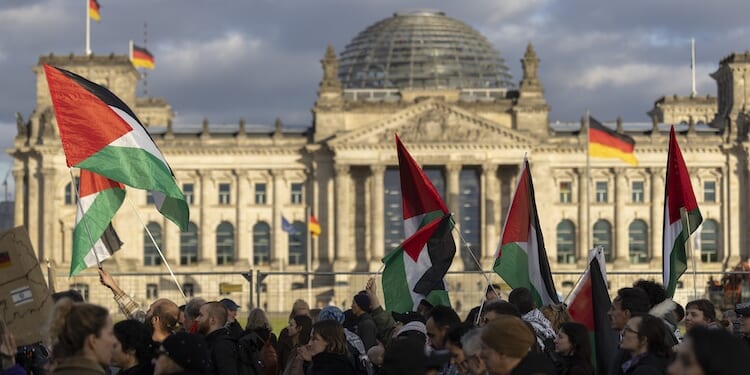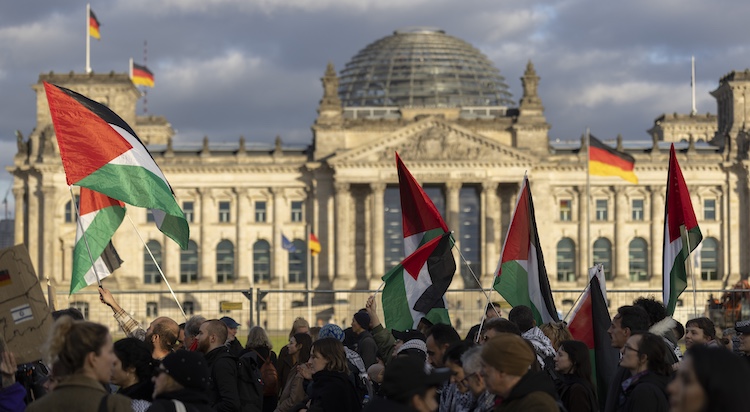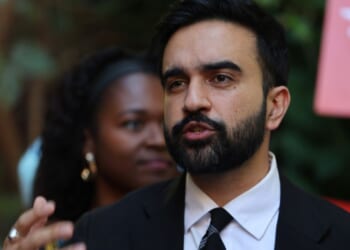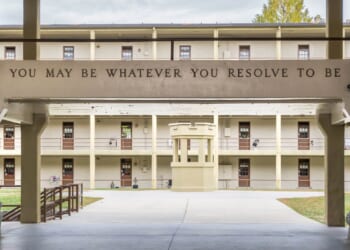In 1948, Golda Meir famously visited a synagogue in Moscow on the High Holidays, a historic visit by an official of the State of Israel. Meir was the young state’s ambassador to the Soviet Union, which enforced anti-Semitic restrictions without calling them that. The Soviets claimed that a true classless society unburdened by capitalist grotesqueries had no reason for anti-Semitism to even exist. But that didn’t help Russian Jews stuck behind the iron curtain.
Meir and her team went to synagogue for Shabbat services a few weeks before Rosh Hashana, the Jewish new year. There they encountered a hundred or so elderly Jews. Meir’s Rosh Hashana visit weeks later was announced in advance, and when the delegation arrived they found the street in front of the shul “filled with people, packed together like sardines, hundreds and hundreds of them, of all ages, including Red Army officers, soldiers, teenagers and babies carried in their parents’ arms.”
Meir was the symbol of the reborn State of Israel, and the Soviet Jews defiantly flooded the Great Synagogue to call out to her “our Golda!” Meir was so moved she could hardly speak. When services ended, the throng made it impossible for her to walk back to her hotel. She was guided into a cab, but the cab “couldn’t move either because the crowd of cheering, laughing, weeping Jews had engulfed it.”
So what did the secular socialist Golda Meir say to the Jews in the brief moment before her cab whisked her away? Meir writes that she was filled with shame for underestimating the Jewish spark that still burned within these Jews who were held down in a society of fear but refused to be broken. She managed to stammer out one sentence, which she ridicules in her own memoirs but which obviously moved the crowd, in Yiddish:
“Thank you for having remained Jews.”
The event had proved to her that the Jewish spirit was far stronger than the evil empire trying to stamp it out. But the Russian Jews would need that strength: Within months, a vicious crackdown on Jewish organizing began. They would pay a price for revealing their unbrokenness.
I thought of this story while reading the very sad case of two Israeli-born DJs whose careers in Europe are on the bubble thanks to BDS. Haaretz writes of Avichai Partok, a Berlin-based DJ being targeted by Ravers for Palestine. (As an aside, it is much easier to find ravers for Palestine than it is to find ravers in Palestine.)
According to Haaretz, Partok took to Instagram to appeal for mercy:
“I oppose the Israeli occupation and the ongoing genocide in Gaza. I am appalled by the recent violations of the ceasefire and the continuing slaughter of Palestinians. I fully support the cultural boycott of Israel and reject Zionism in all its forms.”
He supports the cultural boycott of Israel but would like to please be exempted from the list, because he’s sorry he was born an Israeli Jew: “I left Israel 8 years ago. I no longer perform, work, hold residency or pay taxes there. Like all Israeli citizens, I was required to serve in the military at 18, 27 years ago. I served in a non-combat, administrative job, a chapter of my life I highly regret.”
Another musician-under-fire, Roi Perez, also in Germany, made a similar plea after the Ravers targeted him.
It’s worth noting that there is no indication that such renunciation will have any effect on the Ravers or other BDS-niks. Were these DJs Arab, they would still have bright careers ahead of them in Berlin no matter where they were born. But they were, to Europeans, born guilty.
The challenge facing the Jews of the world is to recognize that this is not a negotiation. They cannot plea bargain their way out of anti-Semitism.
The good news is that the Golda Meir story has an important lesson: Because they were born Jews, they were endowed from birth with a spirit strong enough to withstand even far more punishing social ostracism than that experienced by DJs in Berlin. That might not help them pay the rent, but it will allow them to retain their dignity while giving the anti-Semites a fit.

















